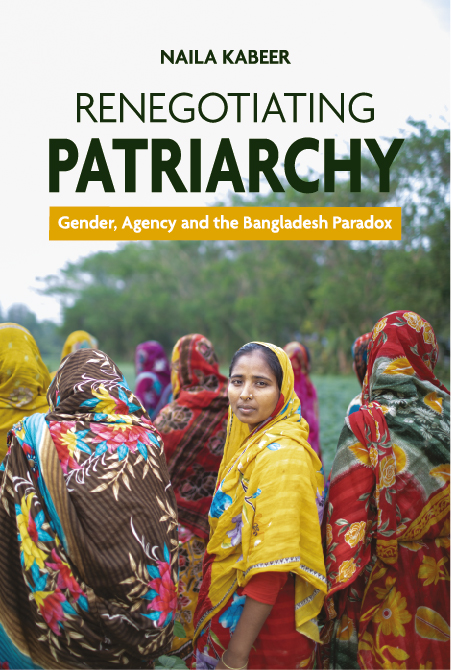
- Shop
- Renegotiating Patriarchy
Renegotiating Patriarchy
Gender, Agency and Bangladesh Paradox
https://uplbooks.com/shop/9789845066662-renegotiating-patriarchy-23680 https://uplbooks.com/web/image/product.template/23680/image_1920?unique=71dc6c1
Tags :
Book Info
The idea of the ‘Bangladesh paradox’ describes the unexpected social progress that Bangladesh has made in recent decades, which has been both pro-poor and gender equitable. This began at a time when the country was characterised by extreme levels of poverty, poor quality governance, an oppressive patriarchy and rising Islamic orthodoxy. This ‘paradox’ has evoked a great deal of interest within the international development community because Bangladesh had been dubbed an ‘international basket case’ at the time of its independence, seemingly trapped in a development impasse. In this book, Naila Kabeer describes the history of the Bengal delta and the forces that gave rise to the kind of society Bangladesh was at the time of its independence. Drawing on a rich body of ethnographic, qualitative, and quantitative research on social change in Bangladesh, the author presents her central argument that much of the country’s progress reflected the agency exercised by ordinary, often very poor, women in the course of their everyday lives. The book is therefore about how norms and practices can change in progressive ways, despite unpropitious circumstances, as a result of the efforts of poor women in Bangladesh to renegotiate what had been described as one of the most non-negotiable patriarchies in the world.

Naila Kabeer
Naila Kabeer is Professor of Gender and Development in the Department of International Development at the London School of Economics and Political Science (LSE) and on the faculty of the International Inequalities Institute at LSE. She has carried out several years of interdisciplinary research on gendered inequalities in relation to labour markets, livelihoods, social protection and collective action. She has worked in an advisory capacity with a number of international and bilateral agencies as well as national and international non-governmental organisations. She is also a member of the advisory board of the United Nations Research Institute for Social Development (UNRISD) and the United Nations University— Institute for Global Health, a member of the UN Women’s Leaders Network, and was recently


